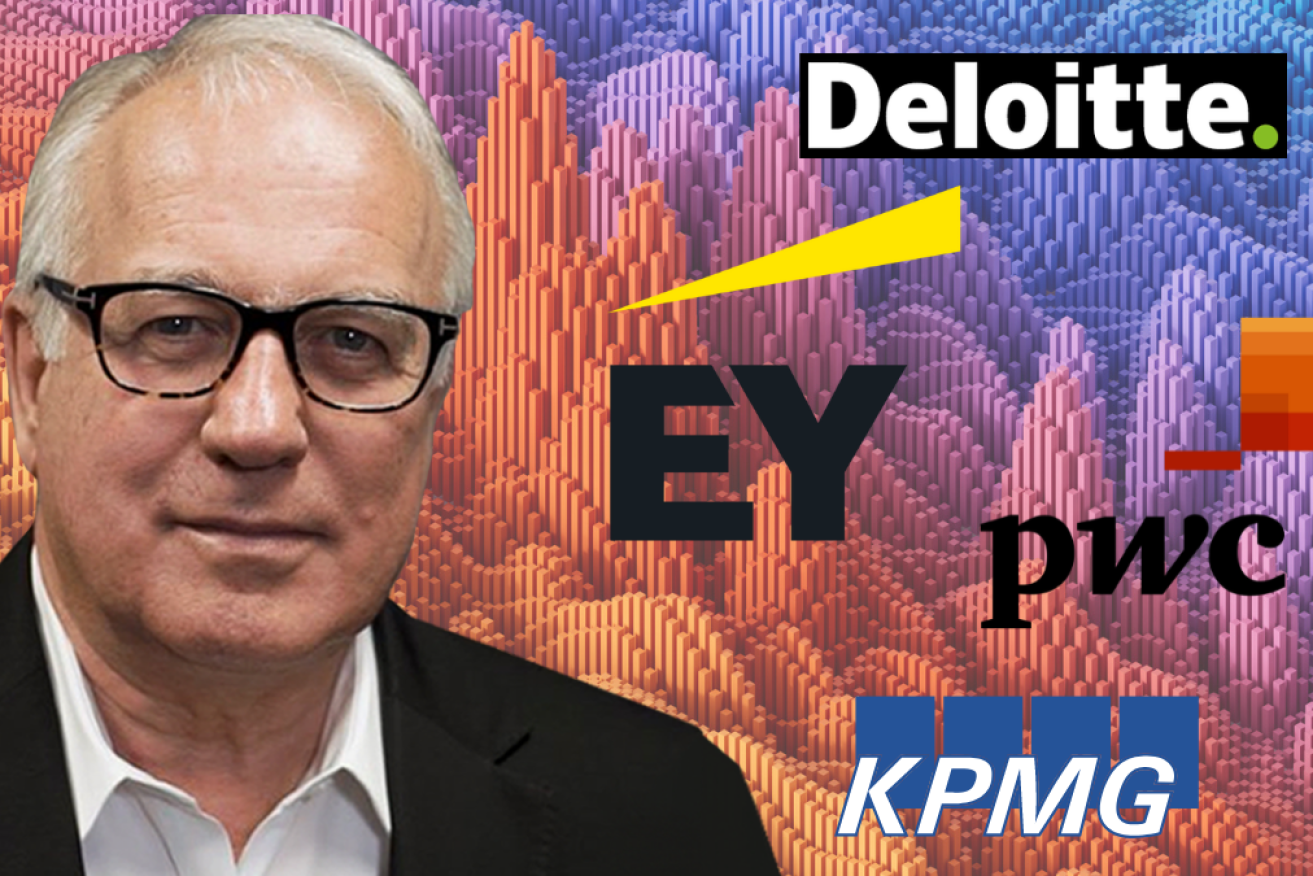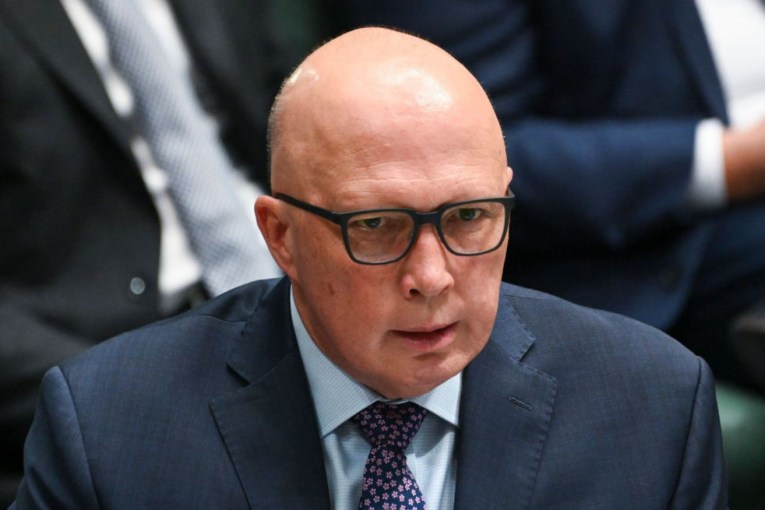Alan Kohler: The extraordinary delusion and madness of crowds of consultants


A royal commission into consultants is needed, writes Alan Kohler. Photo: TND/Getty
The Australian public service cohabits with copious consultants because of three hiring freezes imposed by Coalition governments over the past 10 years.
The Abbott government froze all hirings in 2013 for 18 months, resulting in the loss of about 11,000 jobs; the Turnbull government did it again in 2016, but more targeted – it only applied to a few departments, and 5000 jobs went; the Morrison government imposed another freeze in 2020 in response to COVID-19 that went for six months and resulted in the loss of about 3000 positions.
The number of Australian Public Service (APS) employees has fallen from 168,206 in June 2012 to 159,469 in June last year, while the amount of work they have to do has increased – a lot.
It must have been a deliberate decision by the Coalition to outsource government employment because departmental budgets for consultants seem to have been raised at the same time as hiring was frozen.
In May, the Australian National Audit Office found that the Morrison government had engaged 53,900 full-time equivalents as consultants at a cost of $20.8 billion, or $385,185 each, while capping actual employment.
It meant the public service was actually a third bigger than anyone thought.
The average charge-out rates for the big four accounting firms – PwC, KPMG, EY and Deloitte – range from $250 to $500 per hour.
The highest APS wage – the maximum total salary for SES 3 in the public service pay scales – is $540,600, which works out to be $260 per hour.
In other words, the lowest-cost consultants are invoiced at the same rate as the highest-paid public servants.
No savings
Here’s another way to look at it: Those 53,900 individual consultants engaged by the Morrison government could all have been employed in the APS Senior Executive Service on higher salaries than they were getting from their firms and it would have cost the government less.
It’s delusion and madness for that reason alone, but there is more to it than money.

A lack of transparency from scandal-plagued consultancy giants has sparked calls for a royal commission. Photo: AAP
The Coalition doesn’t trust public servants and private consultants can’t be trusted, as we are now learning.
There is a fundamental difference between the governance of these two ways of working for the government: Members of the APS and their budgets are subject to rigorous scrutiny and full transparency through the Parliament’s budget estimates process; private consulting contracts are usually “commercial in confidence” and the opposite of transparent.
The misuse by PwC of confidential tax information has been fully aired and is getting a going over in a parliamentary inquiry. On Monday, the ABC’s Four Corners dug out some more dirt in the relationships between government departments and the big four accounting firms, in particular KPMG.
Differing expectations
As the think tank Per Capita wrote in its submission to the parliamentary inquiry sparked by the PwC scandal: “Where the public service requires transparency and accountability in both its core values and in expectations of public servants (APS Code of Conduct), no such statutory requirement exists for private consulting firms.”
The government’s own Public Service Commission wrote in its submission: “Individuals providing consulting services to the APS are not employed under the PS Act, and are therefore not required to uphold the APS Values and Employment Principles, nor comply with the APS Code of Conduct.”
The submission from Dr Alistair Ping of Ethics Advisory Services (yes, a consultant) is interesting.
He says that most people in the consulting industry are good people with good intentions, and that unethical outcomes occur gradually and then suddenly – “a person makes a small bad decision which then starts them sliding down the slippery slope to disaster”. He adds that simply weeding out the bad apples is not going to deal with what is a complex systemic problem.
Public discussion about the problem is coalescing around the lack of transparency and oversight highlighted by Per Capita and others in their submissions, due largely to the application of “commercial in confidence” clauses, but while that’s undoubtedly true, it’s only part of the story.
Profit free
More broadly, government is fundamentally different to the private sector because of the absence of profit.
All businesses exist to make a profit and reward the owners who provided the capital. While the individual consultants who are assigned to a project with a government department are simply paid salaries, they are also profit centres within the business – the charge-out rate covers salary plus overheads plus profit for the partners.
What’s more, while Dr Ping is undoubtedly right that they are mostly good people with good intentions, their intentions mainly involve generating a profit. The annual performance appraisals are done by the boss at the consulting firm, not the government, and their careers depend on the profits they generate and how they get on at the firm.
A few things need to happen.
The inquiry has highlighted the fragmented regulation of consultants and the way their partnership models limit reporting and accountability, since the partners are owners, not employees.
Obviously regulation needs to be harmonised, especially as it concerns government work, and some thought should be given to whether partnerships are the right model for large businesses supplying the government.
In its submission, EY actually called for a “comprehensive, federal, regulatory framework for all professional services providers to the government, that is evidence-based and strengthens the requirement to act in the public interest”. KPMG supported EY, so that’s coming.
Need for a royal commission
The government has announced that Treasury will now do a review of the regulation of the major accounting firms that will look, among other things, at whether the partnership model is appropriate, given their size and the importance of the audit work for companies.
A royal commission would be better, in my view. Yes, there have been a few of these lately, but they have a habit of getting to the truth and coming up with the right answers.
On government consulting, a royal commission could look behind the “commercial in confidence” veil and put everything on the table – good and bad – as well as provide a complete picture of how consultants have been replacing public servants, and at what cost.
Royal commissions are wonderful things when done properly and this industry is no less deserving of judicial scrutiny than banking and financial services was in 2017, aged care in 2018 and Robodebt in 2022.
Alan Kohler writes twice a week for The New Daily. He is finance presenter on ABC News and founder of Eureka Report








